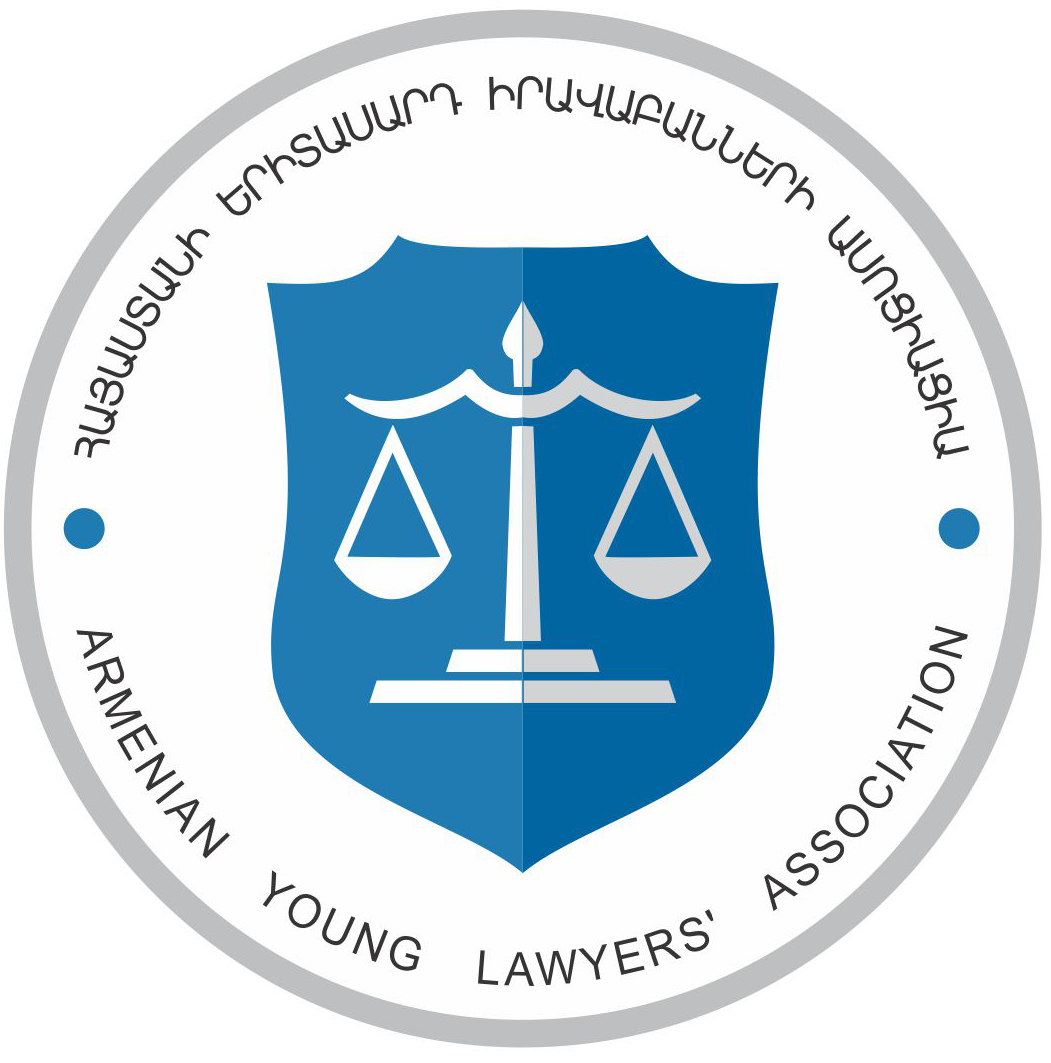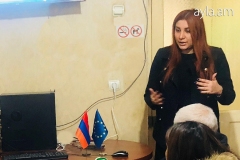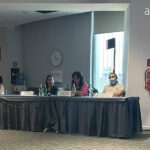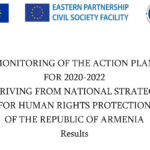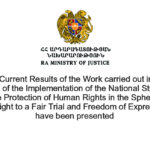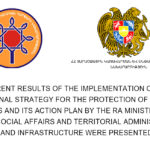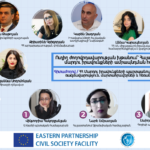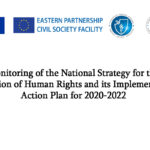The workshop on the topic of “beneficial ownership” took place in Kapan
Today, on 26th of November, 2018, the workshop on the “Introduction of the institute of beneficial ownership in RA” took place in Kapan in the framework of the Eastern Partnership Civil Society Fellowship. The workshop has been conducted by Mariam Zadoyan, an Eastern Partnership Civil Society Fellow and the “Introduction of the institute of beneficial ownership in RA with the aim of combatting corruption” project, Program Manager.
The workshop was organized for the Syunik Province, mainly for business support and youth civil society organizations. Participants included also “Khustup” ecological NGO, “Community Development Center” and other NGOs.
The workshop was divided into 2 parts: 1st part was dedicated to the presentation of the “Eastern Partnership Civil Society Fellowships”. Mariam presented all the information that is necessary for applying for the fellowship. Since 2017 three Calls for Applications were launched and now the networks consists of 60 Civil Society Fellows from Armenia, Azerbaijan, Belarus, Georgia, Moldova and Ukraine. She encouraged to all the young participants to apply for the Fellowship and presented her own experience of opportunities that the program has provided. “Now I have close connections with young leaders in all the countries of the Eastern Partnership and I feel as a part of a big community of leaders”. Mariam also represented all the components of her project, implemented under this fellowship. Participants asked questions on both the fellowship and the project.
In the second part of the training, Mariam explained the reasons of choosing the topic of her fellowship that is the high level of corruption and affiliation of political powers and businesses in the RA. Then, she gave the notion of “beneficial owners” explaining that this is a new tool for solving the problems mentioned by her. The notion includes the natural person behind a legal entity or arrangement who owns or controls it. In most of the cases the mechanism includes involvement of the offshore zones. Participants remembered the vivid example of Mihran Poghosyan, Armenia’s former Chief Compulsory Enforcement Officer. The Panama Papers relieved that Poghosyan, who held the rank of Major General of Justice at the time, owned shares in three Panama-registered companies. Although Poghosyan always maintained that he had no affiliation with the companies, everyone in Armenia new that the market of bananas was monopolized in Armenia by him.
The anti-corruption expert explained that RA already has some limited regulations on the issue, mainly in the spheres of banking, mining and public procurement, which are not sufficient in her estimation to address properly the mentioned issues. She draw the attention of the participants on the need to establish a central register of beneficial owners, mainly taking into account the political will of the new government regarding the intolerance towards corruption. Participants agreed with it.
The fellow also initiated a wide range of issues that would be raised during the introduction of such a register in Armenia. The most problematic is the issue of the method of verifying the reliability of the information provided. The central registry should find an answer to this question. “What supervision practices will be established to verify the accuracy of the beneficial ownership information submitted to the central registry?”
The participants were very interested in the discussion taking into account the fact that the Syunik province is rich with extractive industries. They expressed concerns that the body in charge of verification, should really have all the necessary leverages for it in order to function properly. Some participants have recommended imparting the registry with tax secrets, others with even banking secrets. At the end of workshop, reception has been foreseen.
The article is prepared in the frameworks of the project “Introduction of the institute of beneficial ownership in RA with the aim of combatting corruption” implemented under an Eastern Partnership Civil Society Fellowship provided by EU financed “Eastern Partnership Civil Society Facility” Project, carried out by a consortium headed by GDSI Limited.
The content of the article is the sole responsibility of the author, and neither the European Union nor the implementing consortium of the “Eastern Partnership Civil Society Facility” do not bear any responsibility for it.
Zakar Iskandaryan,
Mariam Zadoyan
